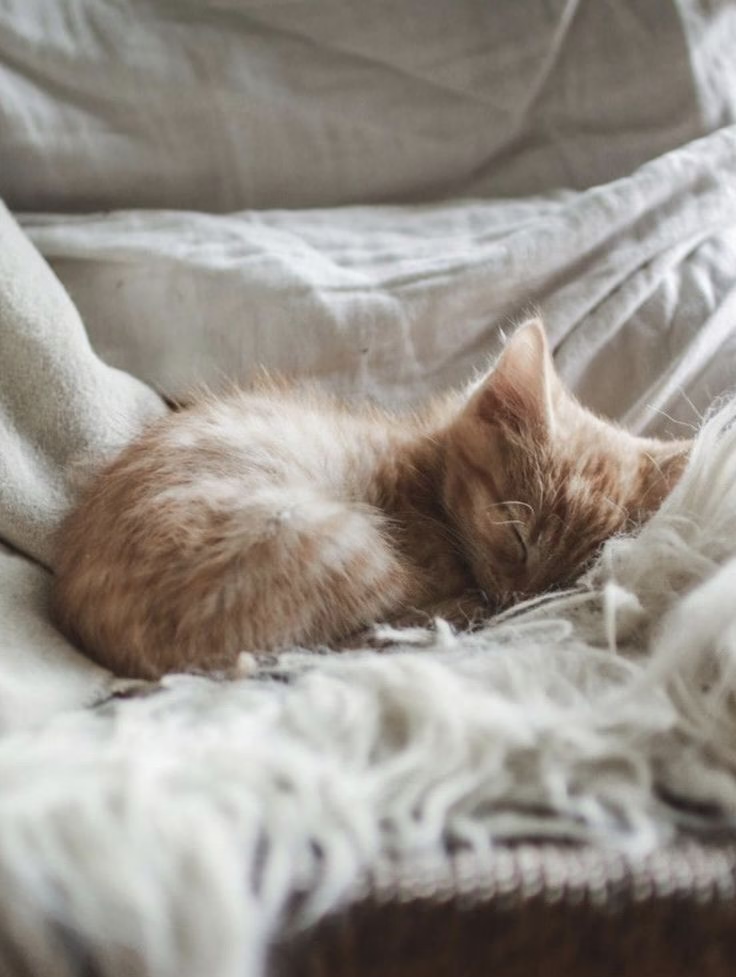Cats are famous for their love of napping. You’ll often find them curled up in sunny spots, dozing the day away. While this is adorable, their sleeping habits serve a purpose. Cats sleep for reasons rooted in their biology and health. Some even snore while they sleep, which can be amusing or concerning. Let’s dive into why cats sleep so much, why they snore, and what it all means for their health.
1. Cats Are Hardwired for Rest
Cats are natural predators. In the wild, hunting requires a lot of energy. Whether they’re stalking prey or making that final pounce, it’s all very demanding. To prepare for these bursts of energy, cats rest most of the day. Even indoor cats who never hunt still follow this instinct. It’s built into their DNA.
Most cats sleep for 12 to 16 hours a day. Some may even snooze for up to 20 hours, especially kittens and older cats. This might seem excessive to us, but for cats, it’s normal. Their bodies are designed to conserve energy whenever possible.
Cats alternate between light and deep sleep. Light sleep helps them stay alert to their surroundings. If you’ve ever seen your cat twitch their ears while napping, they’re likely in this stage. However, if your cat sleeps too much and seems sluggish, it could indicate a health issue. Conditions like anemia or thyroid problems can make cats overly tired. Pay attention to any changes in their energy levels and consult your vet if something seems off.

2. Sleep Quality Affects Their Wellbeing
Just like humans, cats rely on good-quality sleep to stay healthy. Sleep helps repair their bodies. It strengthens their immune systems and keeps their brains sharp. Cats go through sleep cycles, including REM (rapid eye movement) sleep. During REM, they might twitch their whiskers or paws. They’re likely dreaming during this time, possibly chasing imaginary prey or playing with a toy.
The quality of your cat’s sleep can affect their mood and energy. If they don’t get enough restful sleep, it can leave them feeling cranky or stressed. Cats that don’t feel safe or comfortable may not sleep well. This could be due to noisy environments or changes in their home.
A restless cat might be experiencing stress or pain. If your cat keeps switching sleeping spots, it might be because they’re uncomfortable. This could mean joint pain, an upset stomach, or even anxiety. Always make sure their sleeping area is calm, quiet, and cozy. If your cat’s sleep disruptions persist, it’s a good idea to have them checked by a vet.

3. Why Some Cats Snore
Snoring in cats can be quite common, though not all cats do it. When they do, it’s often due to the shape of their airways. Flat-faced breeds, like Persians and Exotic Shorthairs, are more prone to snoring. Their shorter nasal passages make their breathing noisier, especially during deep sleep.
Sleeping position can also play a role. Cats that sleep in odd positions, like flat on their back, might snore more often. Other factors include being overweight, having nasal congestion, or even seasonal allergies. In these cases, snoring may come and go depending on their health or environment.
Snoring isn’t always a problem, but it’s important to keep an eye on it. Persistent or loud snoring can sometimes signal a bigger issue. Obesity can narrow their airways, making breathing harder. Respiratory infections or blocked nasal passages can also cause snoring. If your cat’s snoring is accompanied by sneezing, wheezing, or nasal discharge, contact a veterinarian. Quick treatment can prevent small issues from becoming serious problems.
Cats sleep a lot because their bodies are designed for it. Sleep keeps them healthy, happy, and ready for playtime or hunting (even if it’s just a toy mouse). Snoring, on the other hand, can be a quirky trait or a sign of something more serious.
As a cat owner, it’s important to observe your cat’s sleeping habits. Know what’s normal for them and watch for changes. Long hours of rest are typical, but excessive sleep or unusual snoring shouldn’t be ignored. These behaviors can offer clues about your cat’s health.
Let your cat enjoy their beauty sleep while you enjoy their peaceful company. After all, a well-rested cat is a healthy, content companion.




